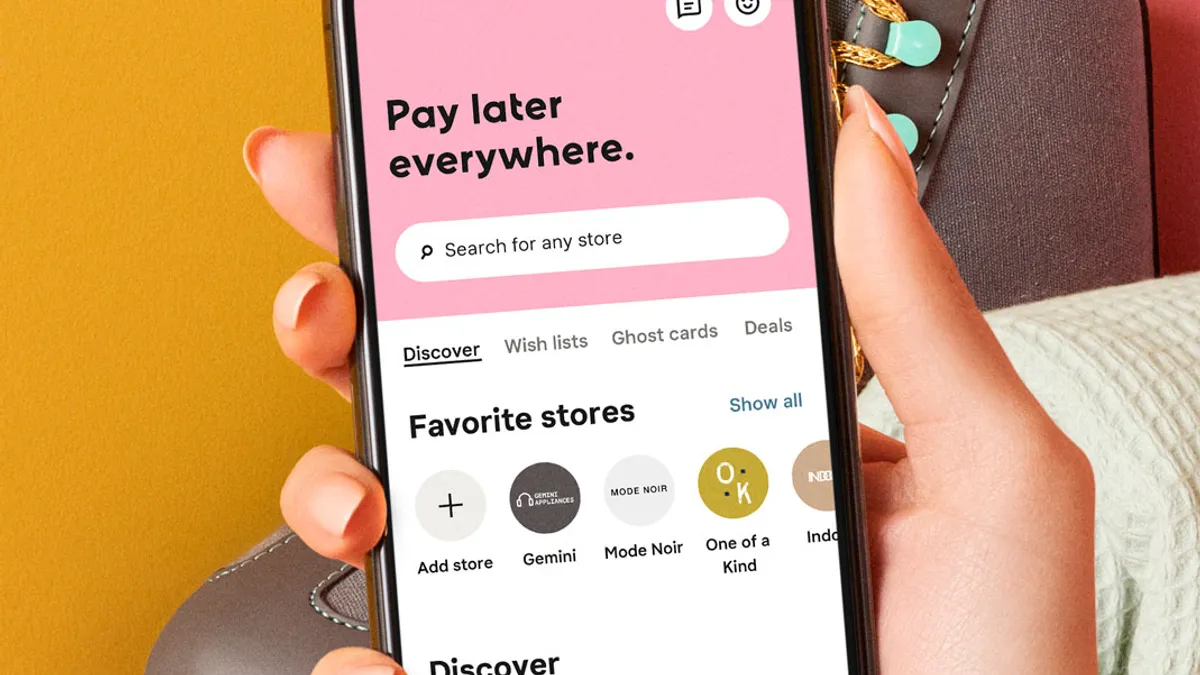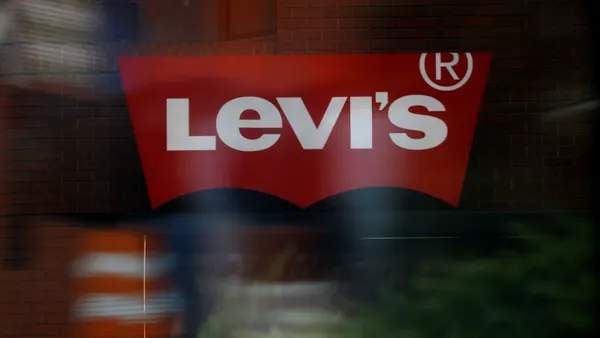Dive Brief:
-
Payments company Klarna last week announced it reached a record 7.85 million customers, a milestone the company attributes to partnerships it's formed with apparel, beauty and footwear brands.
-
As of May, the number of U.S. retailers using the platform grew by 163% year over year to more than 4,200, out of a total of 200,000 global partners, the company said in an announcement. The payments platform now has more than 1 million monthly active users in the U.S., and the app has been downloaded more than 4.4 million times.
-
During the COVID-19 pandemic, the platform has been working with retailers including H&M, Good American and Planet Blue on features like contactless payment as they reopen stores.
Dive Insight:
Before the COVID-19 pandemic, Klarna already offered its installment payments services to a suite of brands, including Rue21, Asos, Indochino and Toms.
But the payments space has increasingly become more saturated. Klarna's competitors have been attracting companies before and during the pandemic as well. Afterpay, Affirm and Splitit have teamed up with companies like Rebecca Minkoff, Levi's, Ray-Ban, Walmart and Stripe Connect. Last month, Shopify also debuted its Shop Pay Installments feature, which lets consumers pay in four payments over time.
Klarna said in its announcement that it now operates within more than 11,000 physical stores. Citing its internal consumer data analysis, the company noted that customers have used the platform to purchase items like groceries and pet food during the early stages of the coronavirus outbreak, but they went on to buy goods like video games, running shoes, DIY home improvement items and musical instruments as the pandemic progressed.
"Given the current situation, retailers are sharply focused on leveraging the key channel they have available — online," Klarna's U.S. head David Sykes said in a statement. "At the same time, more shoppers than ever before are turning to e-commerce for a wide range of product categories, and they are looking to pay for things in a smarter way that lets them manage their finances without having to use credit options that come with interest, fees and revolving debt."














